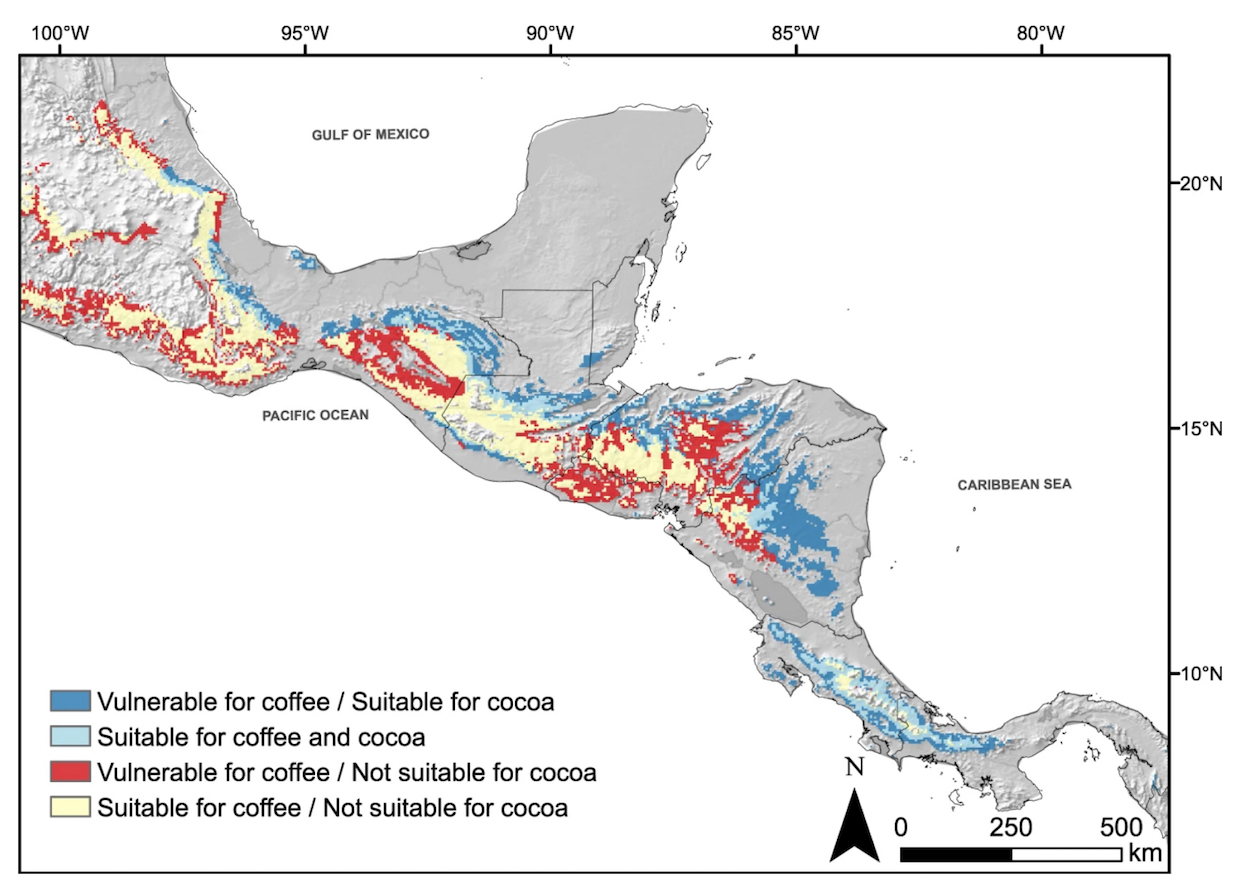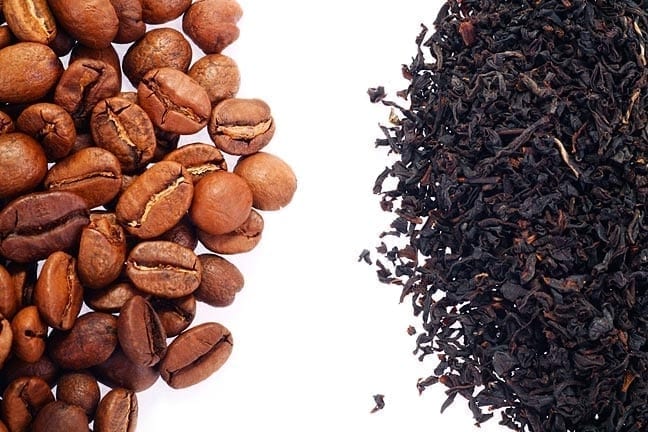If you are currently following a ketogenic diet, also called keto, then you have probably…

Cocoa Could Fill In as Arabica Loses Ground to Climate Change, Research Suggests

Amidst predictions that much of the currently suitable land for growing arabica coffee will become unsuitable in the coming decades due to climate change, new research suggests cocoa may help fill the gap for some coffee producers in Central America and Mexico.
Published by researchers with academic affiliations throughout Northern Europe and Mesomerica, the study concludes that half of the current coffee plantations that are vulnerable to a warming climate — in the study area from Panama to Central Mexico — could be replaced by cocoa.
“This opens a window of opportunity for climate change adaptation,” Kaue de Sousa of the Inland Norway University of Applied Sciences wrote as lead author of the study. “The interest of smallholder farmers in cocoa is growing, driven by the vulnerability of coffee in the changing climate. Now we have to build capacity among smallholders to adapt their crop systems successfully.”
Adding to the potential challenge for coffee producers is another key finding in the study, that nearly 80% of the tree species currently part of agroforested systems in the study area will “drastically shrink” due to climate change. The researchers said those tree species include fruit trees such as mango, guava and avocado, and timber trees, as well as an estimated 56% loss in nitrogen-fixing trees, which have the ability to enhance soil health.
“Despite the concerning decrease in tree suitability, our study provides alternatives for coffee and cocoa agroforestry under the climate emergency faced by farmers today,” de Sousa said.

Potential areas in Mesoamerica where cocoa (Theobroma cacao L.) can replace coffee (Coffea arabica L.) under climate change (RCP 4.5). Dark blue indicate vulnerable areas for coffee that can be replaced by cocoa. Light blue indicate areas suitable for coffee and cocoa. Red indicate vulnerable areas for coffee where cocoa is not an alternative under climate change. Light yellow indicate remaining areas for coffee where cocoa is not suitable.
The study does include a list of sample tree species that could be well-suited for canopy cover, soil health and other factors that could lead to less volatile micro-climates amidst warming. In addition, the authors note that farmers will need access to suitable coffee plants themselves through seed research and distribution.
All of this, of course, requires collaboration, money and time — resources with which few of the millions of farmers throughout Mesoamerica are flush, especially in this time of coffee price crisis.
“Transforming agroforestry systems by changing tree species composition remains the best bet to adapt most of the coffee and cocoa farms across Mesoamerica, the study recommends,” according to a summary from the sustainability science NGO CGIAR, which was partially involved in the funding of the research. “This would involve urgent changes to land use planning, incorporating diversified tree species and including underutilized species into redesigned agroforestry systems. The seed sector also needs to step up by offering farmers seeds and seedlings of the most suitable tree species for each climatic zone. Farmers also need to get on board.”
At several points throughout the study, the researchers acknowledge the market- and infrastructure-related constraints on coffee farmers. Yet solutions, they suggest, must also be driven by farmers.
“Farmers need to rethink current agroforestry species composition and use a portfolio that is suitable in the future climate. This is a challenging task, because it takes a long time for farmers to see their investments bearing fruit,” wrote de Sousa. “We identified that this potential may rely on currently underutilized tree species, such as June plum, sapodilla and breadnut; species that are currently present in coffee and cocoa systems, but in low densities, as they are mainly remnants of previous farm vegetation rather than being actively planted and managed by farmers.”
For more information, see the full study published in Scientific Reports.
Related Reading
Nick Brown
Nick Brown is the editor of Daily Coffee News by Roast Magazine. Feedback and story ideas are welcome at publisher (at) dailycoffeenews.com, or see the “About Us” page for contact information.






